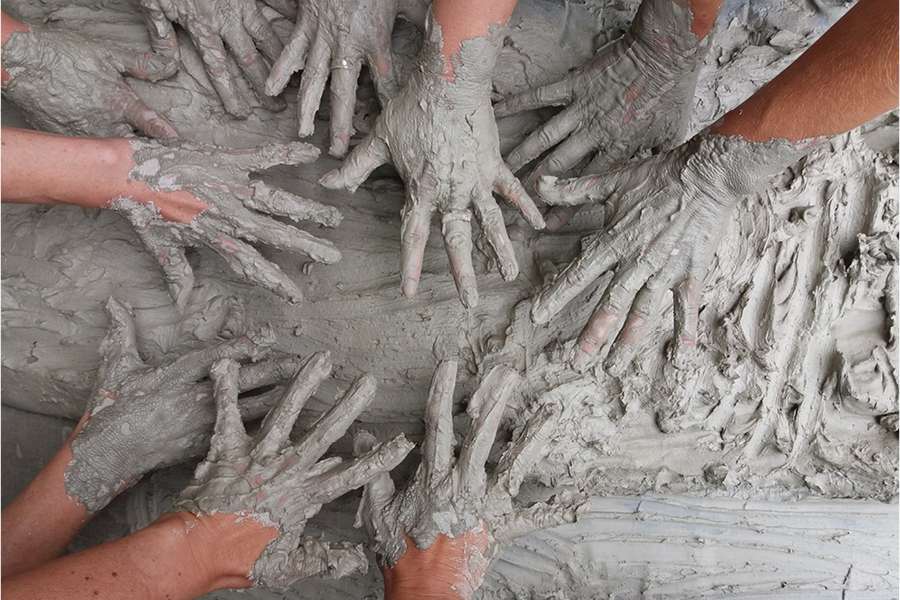These days it feels like bad bosses and toxic culture get all the airtime when it comes to reasons why people leave jobs.
These are real, research-backed factors. But they’re not the whole story.
Today I’d like to shine the spotlight on organizational sludge, which deserves its place on the podium (even if it’s holding the bronze).
As the Great Resignation continues to morph into the Great Reconsideration, people just aren’t willing to wait for things to get awful. Feeling stuck and stunted and slowed by the goopy, sepia-toned, honey-like sludge that sucks the fun out of work seems to be enough these days!
So what is this sludge I keep referring to? Let’s real-talk it out.
Raise your hand if you’ve ever heard (or – be honest – thought or said yourself) any of the following:
- This project has been stuck in “approval” mode for 2 years!
- How do we keep making that same mistake time and again!
- Why do we have totally different/inconsistent understandings of the facts/plans?
- This process feels like it’s out of 1984.
- Why do we never consult the person who’s gonna have to execute?
- How am I supposed to be innovative if I always need a business case to prove my idea? Isn’t the point of innovation to write the business case?
And so so many more.
Organizational sludge isn’t toxic. It’s not mean or awful. It’s just…insidious. It tamps, dampens, slows, frustrates, rubs the wrong way, irritates…and ultimately disengages the talent who’s just trying to do great things
So if you suspect your team may be wading through said sludge…what can you do about it? Pull your team together and…
1. Ask better questions.
First rule of sludge-club is you must talk about sludge club.
So ask – not what’s awful or broken or toxic…but what’s just annoying? Frustrating? What’s slowing you down or causing you agita, or just sapping your energy for no good reason?
Make it a safe space for people to vent a bit. Often, teams want to shield their leaders from things until they’ve hit a state of emergency. So let them know that anything is fair game.
Maybe they’re struggling to collab with another team, or twiddling thumbs while waiting for approvals or lacking clarity or basic info, or are stuck executing processes that are super clunky.
Get it all out there.
2. Talk about first steps
When we see problems we tend to seek solutions.
But solutions can be whole packages of complexity. Like a new system or a redefinition of how two organizations collaborate or a redefined process – all things that can take time, resources, and energy.
But focusing on first steps can be empowering. And it can provide just the momentum you need to ensure your team you’re committed to de-sludgifying the experience.
- If speed of decision-making is the sludge, maybe your first step is to prioritize the top 1 or 2 decisions they’d most like to see expedited and determine whose buy-in you’d need to make that happen.
- If collaboration with another team is the issue, maybe a first step is for you to check in with that team’s leader just making them aware of a problem.
- If arduous processes are the frustration, maybe your first step is choosing one you invite your team to test doing more swiftly and then being willing to ask forgiveness over permission.
The goal here isn’t to achieve a 180. It’s simply to get a ball rolling and replace inertia with some much-needed momentum.
3. Prioritize
If you’re lucky, your team will have lots to offer. So decide, collectively, where the biggest bang for your buck will be.
Choose the stickiest place, the simplest step, and just start.
And sequence the rest.
Assure your team that there will be more to come. But we’ve all got to start somewhere.
4. Commit to a cadence
Make this a recurring conversation. A first step will get you started – earn you some street-cred. But the ongoingness will be the thing that clears out the existing sludge, and also inoculates you from its next generation.
It all really comes down to your talent. Don’t wait for them to hit a wall of misery. Open the door to making small improvements to their daily experience. Don’t let the sludge take over!
